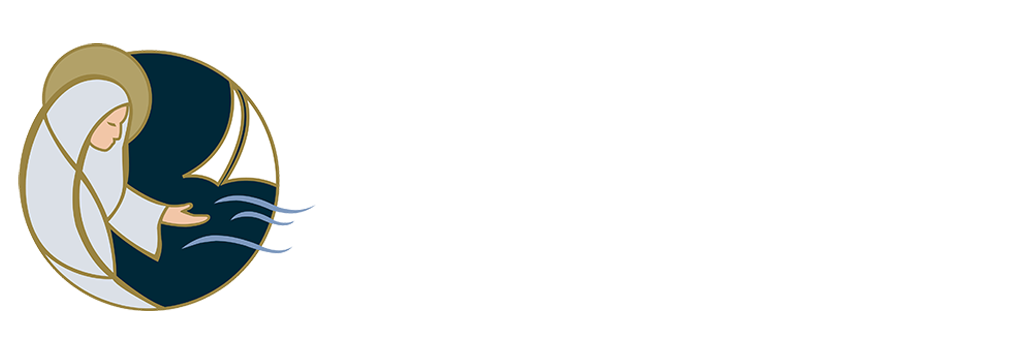On February 11th, Pope Francis affirmed the U.S. bishops' work on behalf of migrants while emphasizing both human dignity and national security. "One must recognize the right of a nation to defend itself... [while] welcoming, protecting, promoting, and integrating the most fragile, unprotected, and vulnerable," he wrote. The President of the U.S. Conference of Catholic Bishops (USCCB) expressed gratitude for the Pope’s support, reaffirming their commitment to a just immigration system that upholds both security and human dignity.
Social Justice Mission
To foster a culture of belonging based on Catholic Social Teaching in which each person feels welcome and valued.
The OLL Parish Social Justice Initiative was formed by the Parish Council in Fall 2020 at the request of Father John Kerns. The Initiative is intended to help our community dialogue and respond to racial and social unrest and live out our call to love.
By providing a forum to learn about the principles of Catholic Social Teaching, it is our hope that hearts and actions will increasingly radiate the love of God through love of neighbor within our parish and community.
Catholic Social Justice—Living out our call to love
What is the greatest commandment? Jesus answers: “‘Love the Lord your God with all your heart and with all your soul and with all your mind.’ This is the first and greatest commandment. And the second is like it: ‘Love your neighbor as yourself’” (Matthew 22:37-39). That theme of LOVE is central to our parish mission:
Love God. Love Others.
Make Disciples of Jesus Christ.
The love of God is manifest in love of neighbor, as evidenced in the Good Samaritan parable (Luke 10:29-37). Every human, created in the image of God, is a brother or sister in Christ, possessing equal dignity and worth. Thus, we are called to love and show mercy to all, regardless of social standing, religion, race or ethnicity.
Catholic Social Teaching
The 7 Principles
Life and Dignity of the Human Person
Preferential Option for the Poor and Vulnerable
Call to Family, Community and Participation
The Dignity of Work and the Rights of Workers
Rights and Responsibilities
Solidarity
Care for God’s Creation
“The Church’s social teaching is a rich treasure of wisdom about building a just society and living lives of holiness amidst the challenges of modern society” (US Conference of Catholic Bishops). With roots in the Old Testament prophets and teachings of Jesus, Catholic social tradition has been foundational to the Church from its earliest days.
Catholic Social Teaching overview resources:
- Thematic poster (courtesy of Catholic Relief Services)
- Video: "Catholic Social Teaching: What it IS, and What it is NOT" (Fr. Robert Sirico)
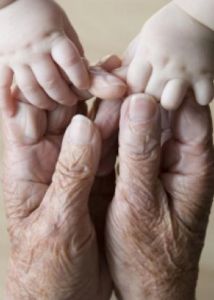
Life and Dignity of the Human Person
All people are sacred, made in the image and likeness of God. People do not lose dignity because of disability, poverty, age, lack of success or race.
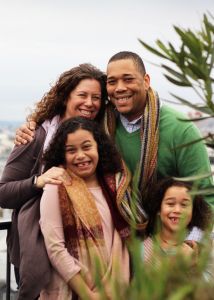
Call to Family, Community and Participation
The human person is both sacred and social. We realize our dignity and rights in relationship with others, in community.
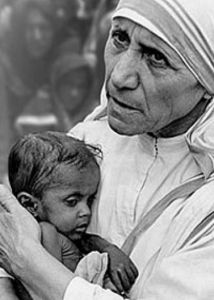
Rights and Responsibilities
People have a fundamental right to life, food, shelter, health care, education and employment. All people have a right to participate in decisions that affect their lives. Corresponding to these rights are duties and responsibilities to respect the rights of others in the wider society and to work for the common good.

Preferential Option for the Poor and Vulnerable
The poor have the most urgent moral claim on the conscience of the nation. We are called to look at public policy decisions in terms of how they affect the poor.
Preferential Option for the Poor and Vulnerable Video

The Dignity of Work and the Rights of Workers
People have a right to decent and productive work, fair wages, private property, intellectual property and economic initiative. The economy exists to serve people.
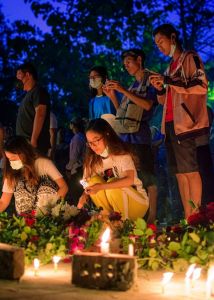
Solidarity
We are one human family. Our responsibilities to each other cross national, racial, economic and ideological differences. We are called to work globally for justice.

Care for God's Creation
The goods of the earth are gifts from God. We have a responsibility to care for these goods as stewards and trustees, not as mere consumers and users.
Rather than a smorgasbord of suggested ways to love our neighbor, Catholics are called to embrace ALL seven principles of Catholic Social Teaching—and to act on them. The challenge begins with becoming familiar with each of them.

Racial Justice
Seeing the face of Jesus in the "other"
Injustice toward the racial “other” persists in our communities. In its most visible form, violence against Blacks, Hispanics, Asians and Native Americans grabs headlines. Less visible are slights and slurs endured by people of color. And often the forms of injustice are virtually invisible—hidden in systems that exclude racial and ethnic minorities from full access to equal housing, employment, education, lending and opportunities that would enable them to pursue their hopes and dreams—their rights as children of God.
The U.S. Conference of Catholic Bishops is emphatic on the issue of racism. It has a profound impact on our culture, and no place in the Christian heart. “This evil causes great harm to its victims, and it corrupts the souls of those who harbor racist or prejudicial thoughts.”
To invite a conversion of hearts, minds and institutions, and to address the evil of discrimination and racism, the USCCB issued a pastoral letter: Open Wide Our Hearts: The Enduring Call to Love. It is accompanied by a helpful study guide for individuals, families or small groups.
Another helpful resource is a March 5, 2021 inspirational message delivered by Deacon Harold Burke-Sivers: “Building a Civilization of Love.” This dynamic speaker has appeared nationally at Catholic conferences, and is local to the Portland area.

Personal Response
“Love one another, even as I have loved you” (John 13:34). This command of Jesus permeates every aspect of faith, for it is in love of neighbor that we express our love of God. Throughout the ages, the Church has established expectations and provided guidance on how love of one another addresses the challenges of the times. From the treasury of writings from Popes and Bishops via encyclicals and ecclesial documents we can draw on that wisdom to fuel our response.
To understand what is expected of us as Catholics, to open our hearts to transformation and to translate that into action, the following lessons are recommended as a good starting point. They are useful not only for personal learning, but lend themselves well to sharing in a family or small group setting.
Catholic Social Teaching 
The introductory videos, scriptural references and ecclesial teachings will familiarize individuals or groups with the themes of CST. The discussion guides are an excellent means to go deeper with each of the seven principles. (7 sessions) (see "Catholic Social Teaching" above)
Open Wide Our Hearts: The Enduring Call to Love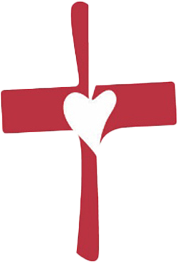
This pastoral letter against racism was issued by the U.S. Conference of Catholic Bishops in 2018—the most recent in a series of documents on the subject. Through it, the Bishops invite a conversion of hearts, minds and institutions to address the evil of discrimination and racism. It is accompanied by a helpful study guide for individuals, families or small groups. (4 sessions)
Fratelli Tutti (On Fraternity and Social Friendship)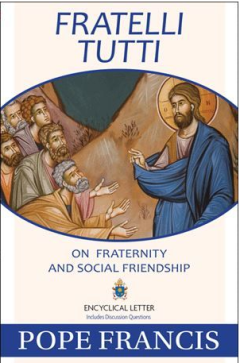
Pope Francis issued this social encyclical in October 2020 to declare ways to build a better, more just and peaceful world with the contribution of all people and institutions. It adamantly rejects war and globalized indifference.
A study guide contains material for faith groups, families and individuals to journey through the encyclical in six sessions. Each session includes an opening and closing prayer, summaries of each chapter of the encyclical, discussion questions for small groups or individuals, and ways to put Fratelli Tutti into action. (6 sessions)
Past Events

We Are More Alike Than You Think:
Finding Common Ground Among Faith Communities
Wednesday, June 8, 2022, 5:30-7:30pm
Location: Our Lady of the Lake Catholic Church
This special event involves enjoyable meal conversations accompanied by tastes of India, wine, and talk about interfaith commonalities led by Fr. Suresh Amalraj, OLL Parochial Vicar.
View promotional flyer HERE.
The event has ended. View video below.
We Are More Alike.mp4 from The Five Loaves on Vimeo.

Black American Catholics on the Road to Sainthood
April 28, 2022, 7pm
Location: Our Lady of the Lake Catholic Church
View promotional flyer HERE.
View video below.

